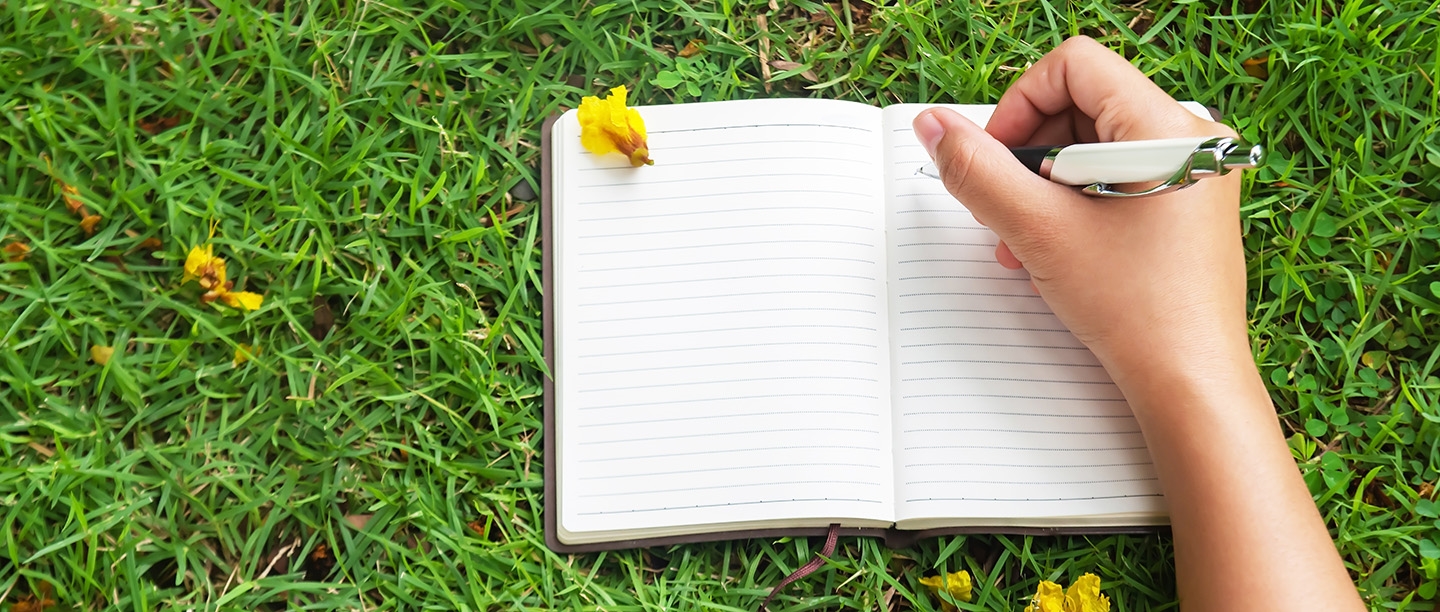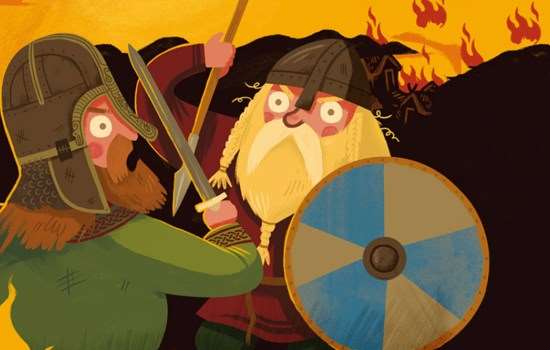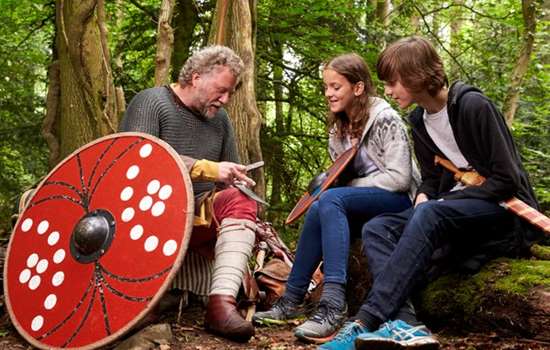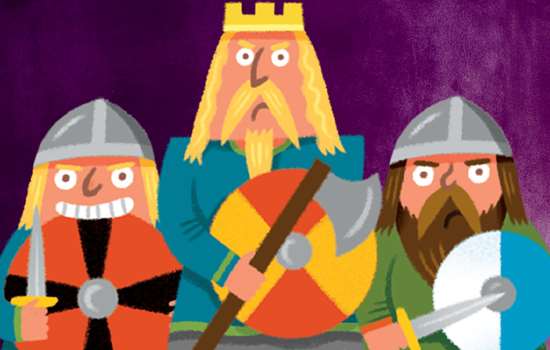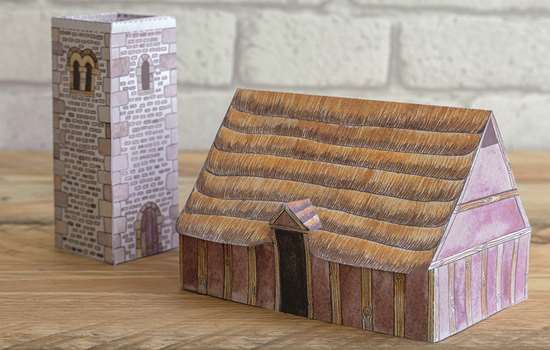Performance poetry
The earliest poetry in English was probably not written down at all. Instead, it was memorised and performed, with a harp accompaniment.
We can find clues to the way Anglo-Saxons experienced poetry in the famous epic poem called Beowulf – an adventure tale with a hero who kills a monster called Grendel. It starts with a shout for silence in the ‘mead-hall’, which sets the scene for the story to be told out loud to an audience. It also uses a lot of alliteration (words beginning with the same letter or sound), which adds emphasis to the words when they are read out loud. Metaphors are used to paint a more vivid picture for the listeners, like saying ‘whale-road’ to describe the sea. This type of metaphor made up of two linked words is called a kenning.
Types of Anglo-Saxon poems
Heroic Poems
Poems like Beowulf are often long, and tell stories of heroes, battles and valiant deeds. Many of these poems existed orally – spoken aloud as performances – for a long time before being written down. Some were never written down and have been lost over time.
Wisdom Poems
These are usually shorter and talk about good and bad fortune in life, with a message about how we can learn from experience. In a poem called The Seafarer, a man describes his difficult and lonely life on the sea, but he finds hope in the thought that he will still go to heaven when he dies. This poem taught Christians to be faithful and to hold onto their beliefs, even when life is difficult.
Christian Poems
Although lots of Anglo-Saxon poetry includes Christian ideas, some poems were written specifically for religious reasons. There are poems about the lives of saints, dreams and visions. In fact Cædmon, the first English poet, was said to have been suddenly granted divine power to write religious poems.
CÆDMON: OUR FIRST NAMED POET
Cædmon, thought of as England’s first named poet, lived at Streaneshalch Abbey (where Whitby Abbey was later founded) in the seventh century. He was an uneducated, middle-aged herdsman who tended the monastery’s livestock, and was well known for leaving quickly after a feast if he saw ‘the harp coming his way’!
Despite avoiding performing any songs, Cædmon was able to compose beautiful alliterative poetry celebrating God. He said he’d been visited in a dream by a man who asked him to sing about the creation of all things, and when he woke up, he was able to listen to some scripture and turn it into verse. Hild, the Abbess of Streaneshalch, declared Cædmon’s inspiration ‘divine’.
The abbey was destroyed in the ninth century, but fragments of Cædmon’s poetry survive today, including ‘Cædmon’s Hymn’, the nine-line poem he wrote immediately after his dream:
Praise we the fashioner now of Heaven’s fabric,
The majesty of his might and his mind’s wisdom,
Work of the world-warden, worker of all wonders,
How he the Lord of Glory everlasting
Wrought first for the race of men Heaven as a roof-tree,
Then made the Middle Earth to be their mansion.
Get inspired!
Now it's your turn to be the poet! Write a poem about something or someone that inspires you. Caedmon was inspired by God and Christianity, but you can choose anything you like. It could be about a person you look up to, something you love doing, nature, your favourite pet – anything that makes you happy!
Use some Anglo-Saxon style kennings or metaphors and aliteration in your poem, and try to tell a story with your writing. Make it as long or short as you like, with short verses, long verses, rhyming, or not rhyming… you decide! You could even perform it to your family or friends, just like the Anglo-Saxons did.

